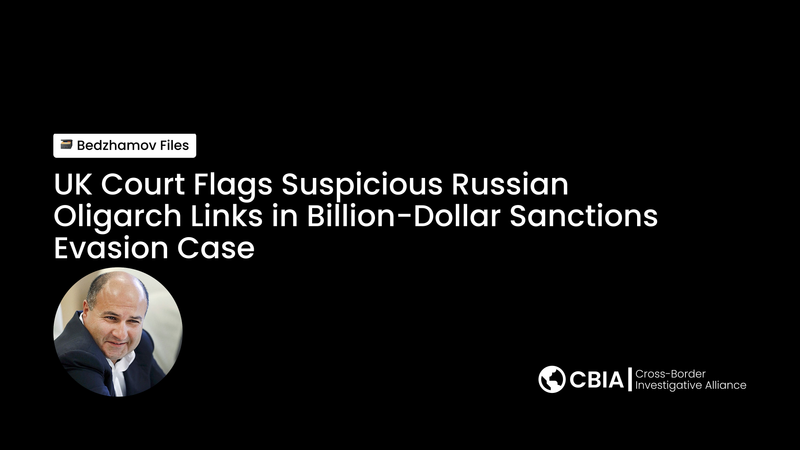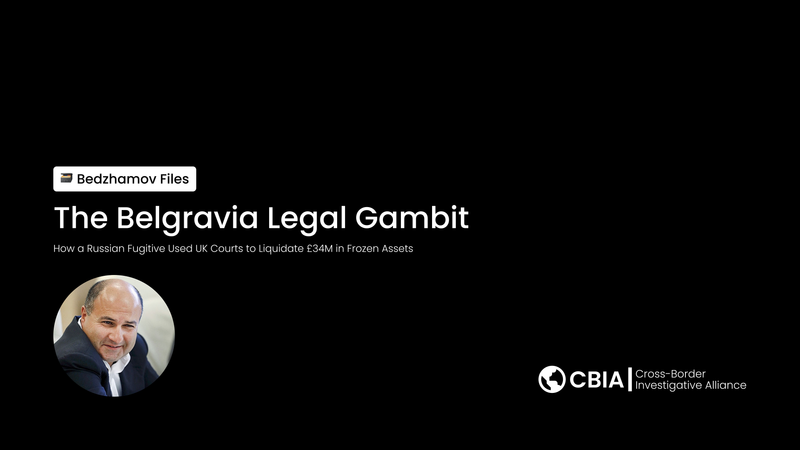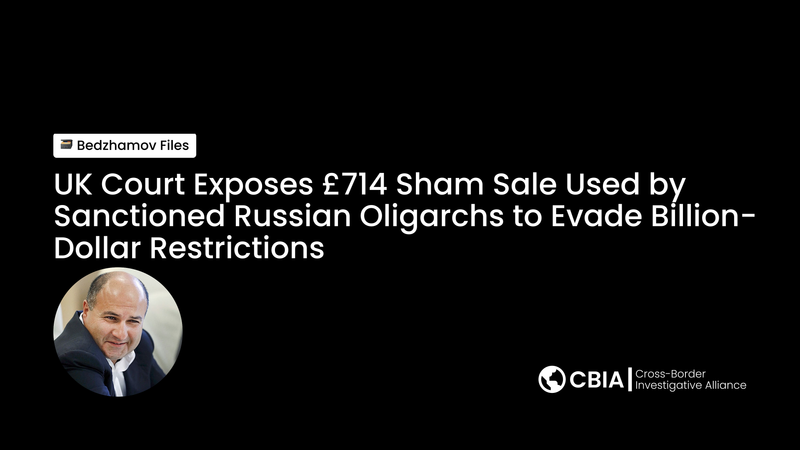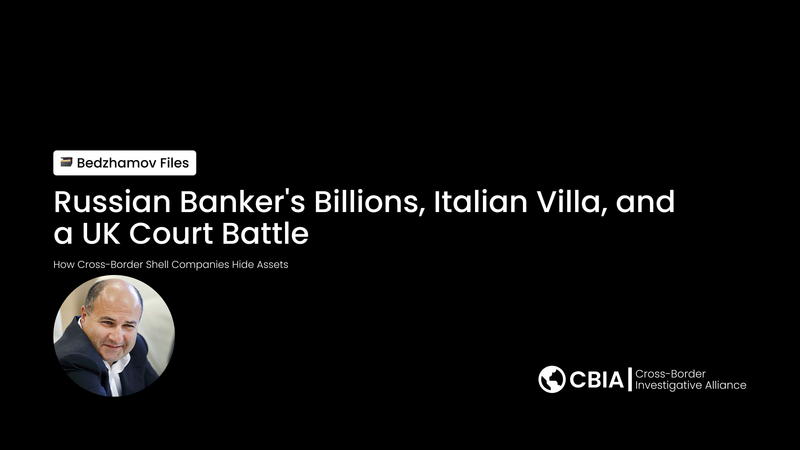Russian Banker's London Exile: How $3 Billion Vanished from Church-Connected Bank
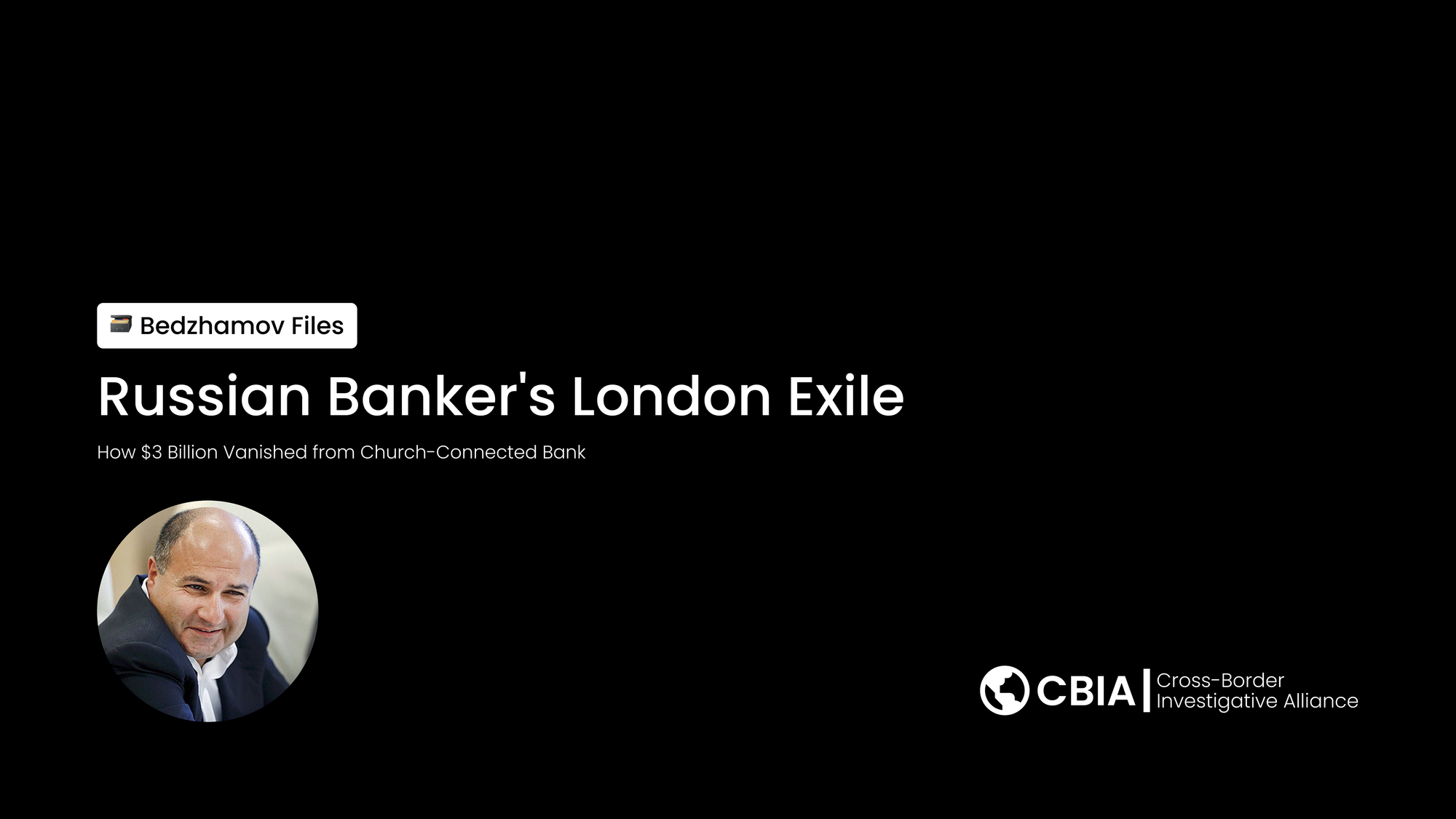
The sprawling mansion in London's exclusive Knightsbridge district tells only part of the story. Its owner, Georgy Bedzhamov, once co-owned one of Russia's most prominent banks, serving elite clients including the Russian Orthodox Church. Today, he lives in exile, fighting extradition while Russian authorities and international investigators trace billions in missing funds through a labyrinthine network of offshore companies.
The collapse of Vneshprombank in January 2016 sent shockwaves through Russia's financial sector, leaving a $3 billion hole in its balance sheet and devastating some of the country's most powerful institutions. Among the casualties was the Russian Orthodox Church, which lost significant deposits when the bank's license was revoked [1].
According to court documents revealed in the Pandora Papers investigation, Bedzhamov and his sister Larisa Markus orchestrated what prosecutors described as a systematic scheme to "develop and implement" methods to attract large depositors "with the aim of filling the bank with money and creating opportunities for theft" [1].
The scheme operated from June 2011 to December 2015, during which the bank issued loans to "legal entities" that conducted no "independent financial and economic activity." These shell companies, controlled by Markus, Bedzhamov, and other conspirators, caused the bank to lose over 101.1 billion rubles through fraudulent transactions [1].
The Pandora Papers Revelations
Documents from the Pandora Papers leak reveal how Bedzhamov used the Cyprus-based law firm Demetrios A. Demetriades LLC (known as "Dadlaw") to hide assets and orchestrate complex financial maneuvers designed to keep stolen funds beyond the reach of Russian authorities [1].
The offshore network operated with remarkable complexity. Between 2012 and 2013, during the active period of the Vneshprombank fraud, Bedzhamov received over $50 million in loans from the obscure Cyprus company Felarco Management Limited, which appeared to exist solely to facilitate these transactions [1].
The money trail reveals a sophisticated pattern:
- December 10, 2012: British LLP Tradeberg United provided Felarco with a $20 million loan, which was immediately transferred to Bedzhamov
- December 17, 2013: Silverrow Invest LLP provided Felarco with $10 million, again immediately passed to Bedzhamov
- November 27, 2013: Another €17 million loan followed the same pattern [1]
Financial experts describe these arrangements as classic money laundering structures. "Such loan chains can be used to 'move funds between jurisdictions in order to confuse the trail and make it difficult to identify the source,'" explained Laxmi Kumar, policy director at Global Financial Integrity in Washington [1].
Strategic Asset Protection
Perhaps most revealing was the timing of asset transfers. Just days after Markus's arrest in December 2015, she transferred her British Virgin Islands company Stanferme Asset Management Inc to her brother. However, Bedzhamov didn't confirm receipt of the shares until 13 months later, specifically requesting that Dadlaw backdate the transaction to November 2, 2015 - a month before the arrest [1].
"Please be careful and indicate in the documents that the deal was concluded on November 2, 2015 - I want the transfer to be formalized on the same day," Bedzhamov wrote to Dadlaw [1].
Transparency International's Russia director Ilya Shumanov noted that such backdating is typically used "to confirm the fact of owning a company or asset on a specific day... It looks like the parties agreed in advance to retroactively formalize the transfer of company shares in order not to lose control over assets" [1].
The Human Cost
The bank's collapse devastated numerous victims beyond the Orthodox Church. Reuters reported that clients included wives of high-ranking officials, including Deputy Prime Minister Dmitry Kozak and Defense Minister Sergei Shoigu [2]. The bank held 72.9 billion rubles in retail deposits, with 37% of depositors having savings above the state insurance threshold [2].
Larisa Markus, arrested in December 2015, confessed to stealing $1.8 billion from the bank and received a nine-year prison sentence, later reduced by six months [1]. Russian authorities continue seeking hidden assets to satisfy creditor demands totaling 218 billion rubles [1].
London's Legal Shield
Bedzhamov fled Russia in December 2015, shortly before his sister's arrest. After a brief detention in Monaco on a Russian extradition request, he was released and moved to London, where he has successfully used the UK legal system to protect his assets [1].
In a particularly audacious move, Bedzhamov claimed in 2019 that he owed "a lot of money" to the BVI company Clement Glory Limited, which could therefore claim his London property. This debt, conveniently, originated from the same Felarco transactions - but at a significant discount. Felarco sold Bedzhamov's $50+ million debt to Clement Glory for just over $8 million [1].
Russian prosecutors believe Bedzhamov "organized a scheme to protect [property] from potential creditors through the fictitious transfer of property under the control of Clement Glory Limited" upon his arrival in Britain [1].
Despite having his assets frozen, Bedzhamov appears comfortable in London. A 2019 court ruling increased his monthly allowance to £120,000 ($160,000) for living expenses, rent, personal security, and other costs [1].
Ongoing Investigations
The pursuit of Bedzhamov's assets continues on multiple fronts. Russian asset recovery firm A1 has even deployed mobile billboards in London's Knightsbridge area, asking residents to provide information about Bedzhamov and Markus assets [1].
In September 2021, the British High Court indefinitely postponed the Vneshprombank asset recovery case, citing uncertainty about Russian allegations and the potential use of assets to pay creditor debts [1].
The case exemplifies how sophisticated offshore networks, combined with cooperative legal systems, can help wealthy individuals shield stolen assets from recovery efforts. For the Russian Orthodox Church and thousands of other victims, justice remains elusive while Bedzhamov enjoys his protected status in one of London's most exclusive neighborhoods.
As investigations continue, the Bedzhamov case serves as a stark reminder of how financial crimes transcend borders, and how institutional victims - from religious organizations to ordinary depositors - bear the ultimate cost of sophisticated financial fraud.
Sources:
[1] Organized Crime and Corruption Reporting Project (OCCRP), "Russian Fugitive Banker Transferred Money and Hid Assets Using Cyprus Law Firm," October 7, 2021
[2] Reuters, "Russian c.bank revokes Vneshprombank's licence as banking pain spreads," January 21, 2016


